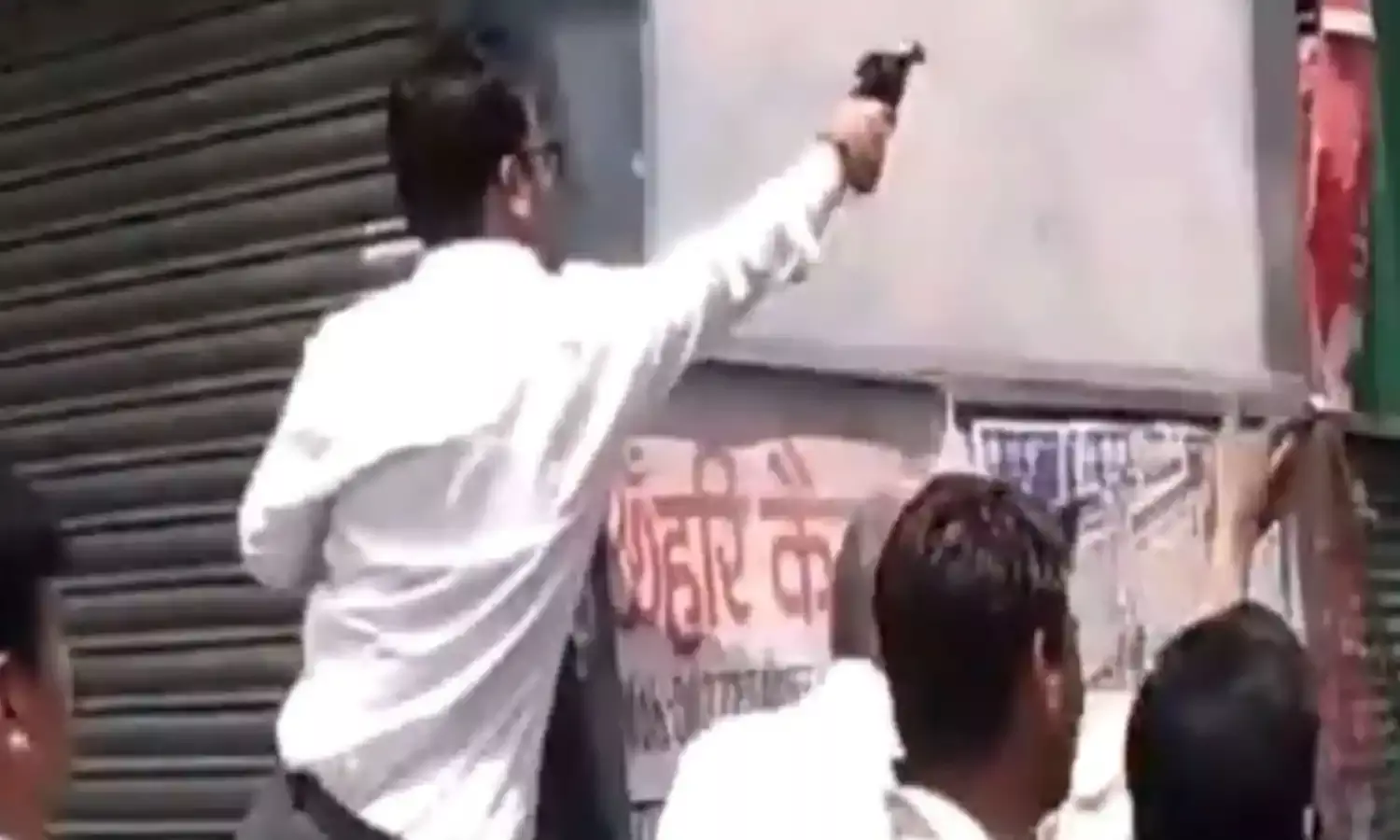Violence on Bharat Bandh: Conspiracy? Probe Needed, Says Ambedkar
Prakash Ambedkar to step up efforts for a representative Dalit committee

NEW DELHI: A man videographed holding a gun, hiding behind a wall, and firing in Gwalior even as the Dalits protest for their rights. It is not clear who he is shooting at. Another man in a checked shirt, holding a gun, with a nasty expression on his face. Two images circled even by television news channels with the question: who are these people?
Nine persons, seven of them Dalits killed in a bandh that all Dalit organisations supported, but no one knows who instigated the violence with government property being set on fire, as anger poured on to the streets. BR Ambedkar’s grandson Prakash Ambedkar told The Citizen that the role of these ‘outsiders’ needed to be investigated. Dalits are not armed, he asserted.
Even as major Dalit organisations distanced themselves from the Bharat Bandh violence later, Ambedkar said the government’s silence and the Supreme Court were responsible for the anger. He said that the Dalits were responding to the government’s silence on the atrocities committed against them, with the courts dilution of the SC/ST Atrocities Act coming as the proverbial last straw.
Ambedkar, like Bahujan Samaj Party leader Mayawati and other outfits like the Bhim Sena was categorical, however, that the Dalits “are not armed.” That the men with the guns were outsiders and their role needed to be investigated. He said that he has seen this before with violence often following peaceful protests. “It is as if someone wants to give Dalits a bad name and take the legitimacy out of their struggle, or at least try to,” he said.
Ambedkar said it was interesting how this Bharat bandh took place. He was in talks with several Dalit organisations for a April 9 Bharat bandh when the call for a bandh on April 2 was circulated as a message on the phone. He said in no time this went viral with at least 15-20,000 Dalit organisations all over north India endorsing it. No one owned the message and despite effort they were not able to trace it to an original source. However, the response was tremendous, and the bandh took place without any coordination committee, or discussion, or even a resolution of demands.
Dalits came out on the roads in what was a ‘spontaneous’ outburst, Ambedkar said. And while firm that the involvement of the visible ‘outsiders’ needed to be probed, said that the anger too is real and palpable. As the government with its continuing silence despite a hike in the atrocities has made the Dalits feel that it no longer cares. This anger has been further stoked by the active participation of Hindutva organisations in anti-Dalit violence in the states. Ambedkar said this was more evident in the north Indian states which bore the brunt of the violence yesterday as well. The South, as he pointed out, was untouched.
The dilution of the Act by the courts had further aggravated the situation, as for the Dalits who still face discrimination in every aspect of life, even the solace of law has been withdrawn.
Mayawati held a press conference highlighting the anger of the Dalits, and also hinting at RSS infiltration of the protest. Bhim Sena and Bhim Army also expressed concern about the violence and spoke of incitement and provocation by those outside the movement.
Ambedkar while expressing similar concerns, however, said that he would step up efforts to bring together the Dalits outfits under a coordinated umbrella. As he said, the bharat bandh had demonstrated the urgent need of such a conglomerate, that could work together to channelise the anger along a more productive route. He said that the Dalits knew that untouchability was still practicsed, that they were still at the lowest rung of the social ladder, that they were discriminated against at every opportunity and hence the government silence, and the apex courts directive had brought them on the streets in response to just one message from an anonymous source.
Ambedkar said that despite effort they had no idea from where the message had orginated but it had clearly touched a chord in north Indian states, judging from the response. The fires were lit in BJP ruled states like Madhya Pradesh, Rajasthan, Uttar Pradesh where Bhim Army’s chief Chandrashekhar continues to be in jail without bail, Jharkhand, National Capital Region, Maharashtra. The police responded with firing leading the Dalit leaders to ask why the protocol of warnings, and other action was not taken before the weapons were used. In several areas the cops were hit, in many others they went inside and dragged out the youth and were seen beating them viciously.
The confrontation between the Dalits and the government has sharpened dramatically leading the organisations to intensify the effort to set up an effective coordination committee for any future action.



